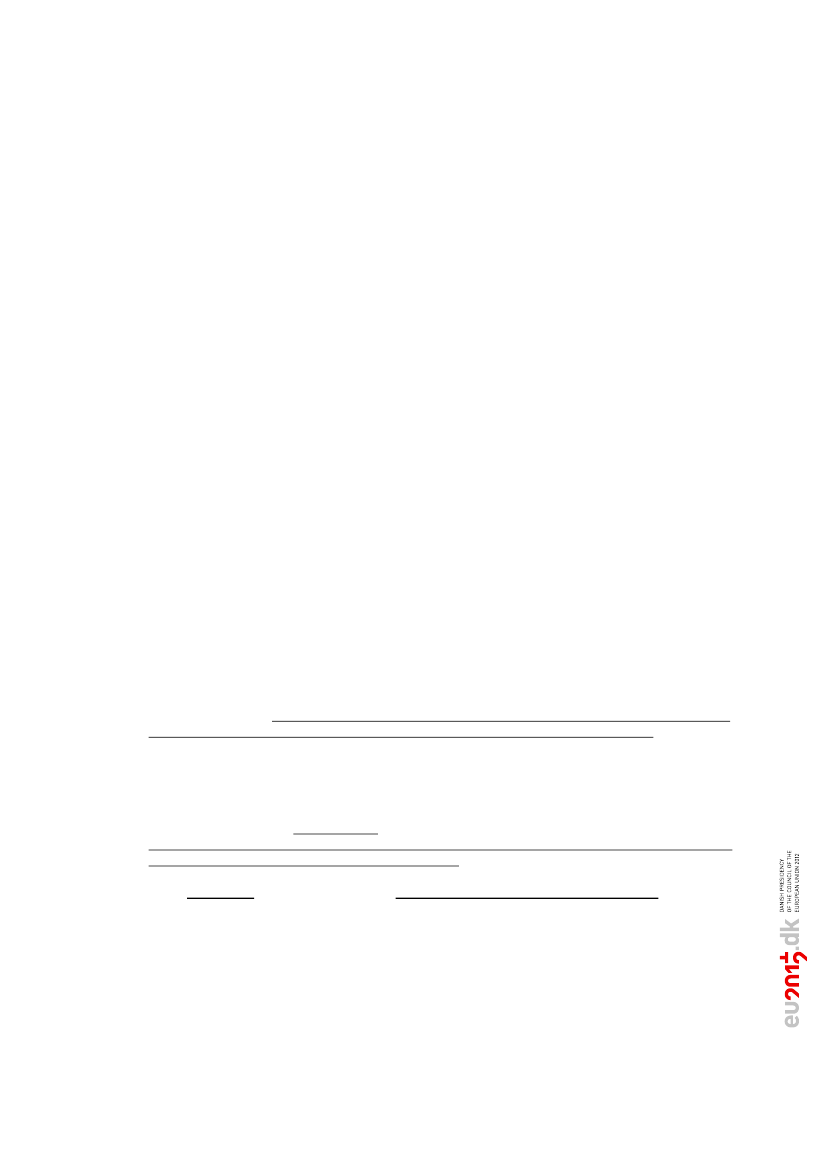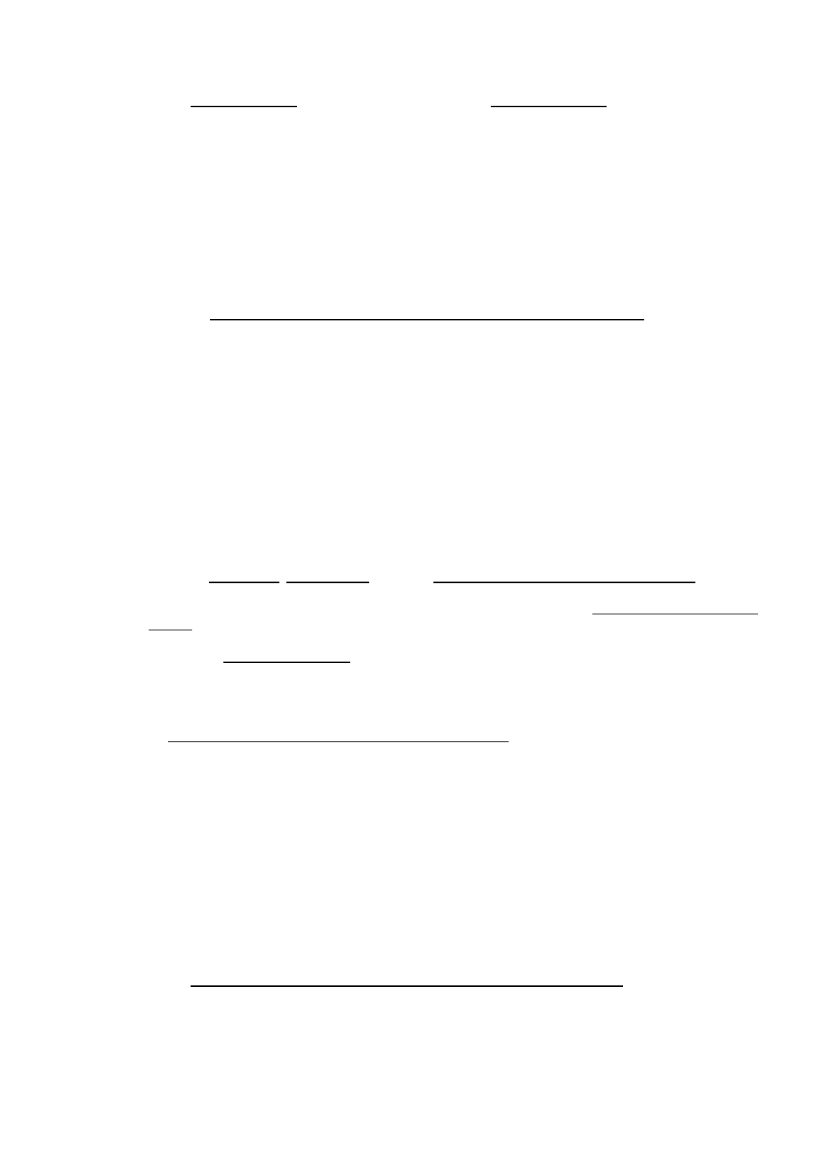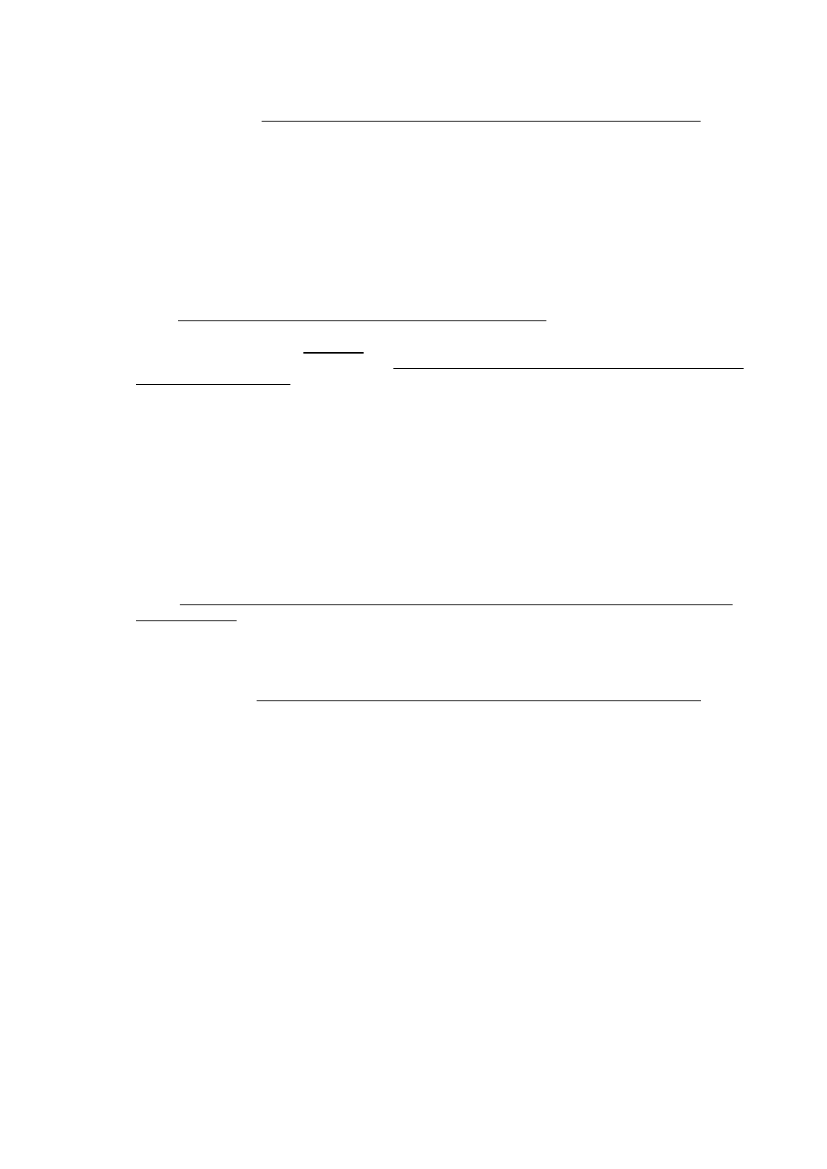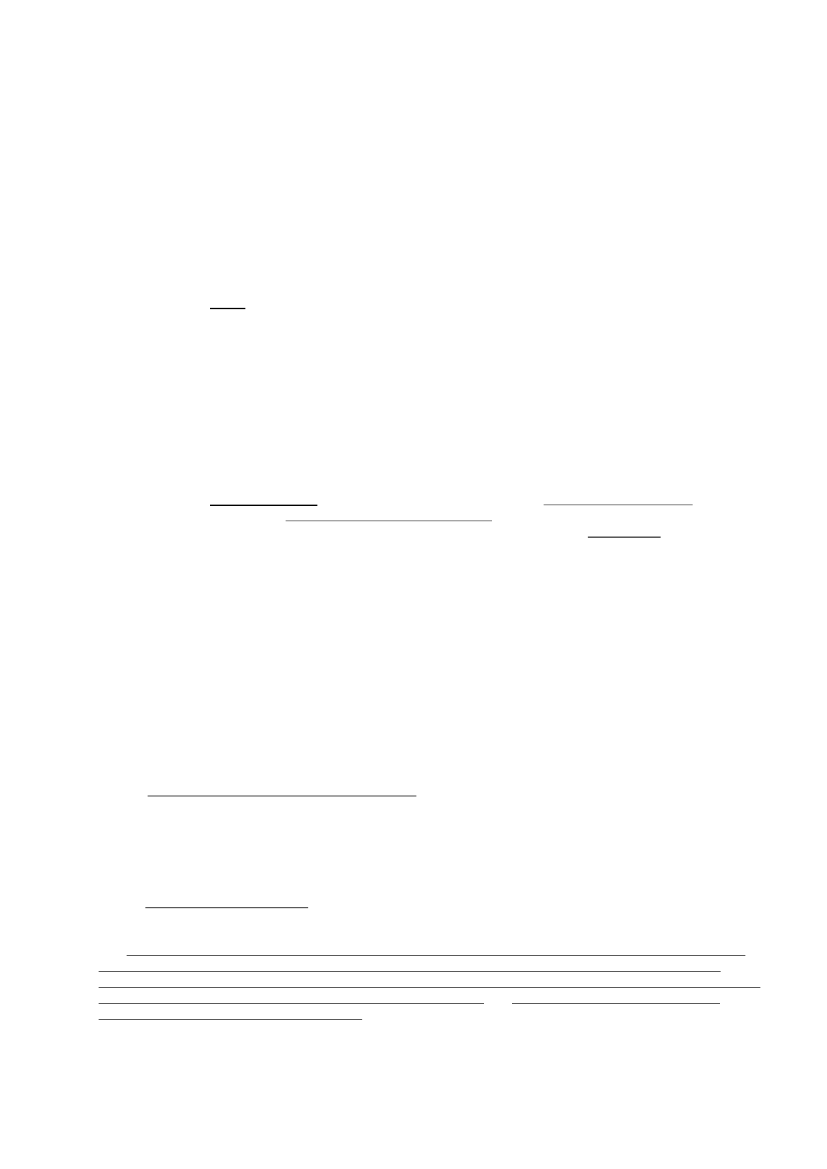Miljøudvalget 2011-12
MIU Alm.del Bilag 437
Offentligt
MiljøministerietKlima- Energi og BygningsministerietUdenrigsministeriet
Oversigt over hovedresultater i Rio+20 slutdokumentet – i et DK/EUperspektiv.
Den 27. juni 2012
Forud for Rio konferencen blev på en teknisk gennemgang for udvalgsmedlemmer d. 8.juni givetfølgende vurdering af et realistisk udfald af konferencen – i lyset af forhandlingssituationen:••••••••Anerkendelse af potentialet i grøn økonomi – en ny dagsordenBeslutning om at udvikle bæredygtighedsmål (SDG’er), måske med beslutning om prioriteredeområder og en beslutning om at SDG’er udvikles sammen med revisionen af MDG’erBeslutning om styrket handling for prioriterede resourcer (måske med tidsfrister)Beslutning om at udvikle BNP+ indikatorer (“Beyond GDP”)Beslutning om 10 årigt rammeprogram for Bæredygtig produktion og forbrugBeslutning om at opgradere CSD samt særlig repræsentantBeslutning om at opgradere UNEPMere aktiv rolle for den private sektor (incl. CSR-rapportering) og civilsamfundet i øvrigt,herunder byer
./.
Denne notits giver en kondenseret oversigt over hovedresultater af Rio+20 konferencen med fokus pådisse emner af særlig dansk/europæisk interesse. Konferencens slutdokument vedlægges til orientering.
a.Grøn Økonomi.Anerkendelse som virkemiddel.Grøn økonomi blev anerkendt som et vigtigt værktøj til at opnåbæredygtig udvikling. Behovet for omstilling til en Grøn Økonomi har med Rio aftalen taget skridtet fraanalyserapporter (OECD, Verdensbanken, UNEP, m.fl.) til at være politisk anerkendt.Slutdokumentet anerkender Grøn Økonomi som vigtigt virkemiddel til bæredygtig udvikling , og at GrønØkonomi fremmer bæredygtig ressourceforvaltning og ressourceeffektivitet. Samtidig opfordreslandene til at udvikle politikker for grøn omstilling:56. … In this regard, weconsider
green economy in the context of sustainable development and povertyeradication as one of theimportant tools
available for achieving sustainable development and that it couldprovide options for policy making but should not be a rigid set of rules. We emphasize that it should contributeto eradicating poverty as well as sustained economic growth, enhancing social inclusion, improving humanwelfare and creating opportunities for employment and decent work for all, while maintaining the healthyfunctioning of the Earth’s ecosystems.60. Weacknowledge
that green economy in the context of sustainable development and poverty eradicationwill
enhance our ability to manage natural resources sustainably and with lower negative environmentalimpacts, increase resource efficiency and reduce waste.62. Weencourage
each country to considerthe implementation of green economy policies
in the context ofsustainable development and poverty eradication, in a manner that endeavours to drive sustained, inclusiveand equitable economic growth and job creation, particularly for women, youth and the poor.
b. BNP+ (Beyond GDP)Enighed om behovet for BNP+.Der er nu enighed om, at der er behov for bredere mål end dettraditionelt brugte BNP, for at give et dækkende billede af udviklingen i samfundsøkonomien. Der erogså enighed om, at lancere at FN program for at udvikle nye metoder til at måle velstand.
38. Werecognize the need
for broader measures of progressto complement GDP
in order to better informpolicy decisions, and in this regard, we request the UN Statistical Commission in consultation with relevant UNSystem entities and other relevant organizations to launch a programme of work in this area building onexisting initiatives.
c. Bæredygtighedsmål - Sustainable Development Goals.Igangsættelse af proces til udvikling af bæredygtighedsmål indenfor slutdokumentets temaer.Det erbesluttet at fastsætte globale mål for bæredygtig udvikling. Det vil skulle ske på emneområder, der erfokus på i slutdokumentet, som for eksempel vand, fødevarer og oceaner. En arbejdsgruppe skal sættesop kort efter Rio, og der skal ligge et udkast til mål klart i 2014. Bæredygtighedsmålene skal besluttes iFN’s Generalforsamling, og skal indgå i FN’s udviklingsdagsorden for tiden efter 2015.248. Weresolve to establish an inclusive and transparent intergovernmental process on SDGs
that is opento all stakeholders with a view to developing global sustainable development goals to be agreed by theUnited Nations General Assembly. An open working group shall be constituted no later than the opening ofthe 67th session of the UNGA and shall comprise of thirty representatives, nominated by Member Statesthrough the five UN regional groups with the aim of achieving fair, equitable and balanced geographicrepresentation. … It will submit a report to the 68th session of the UNGA containing a proposal forsustainable development goals for consideration and appropriate action.
d. FN’s miljøprogram og FN’s bæredygtighedsarbejdeFN’s miljøprogram:Opgradering af UNEP.Det er besluttet, at UNEP skal have universelt medlemskab.Det betyder, at UNEP’s arbejde med miljø fremover ikke kun vil være et spørgsmål for nogle lande, menet anliggende for alle. Derudover er der opnået enighed om, at UNEP’s finansielle base skal styrkes,hvilket vil give flere muskler til FN’s bistand til udviklingslandene på miljøområdet.88. We arecommitted to strengthening
the role ofthe United Nations Environment Programme
as theleading global environmental authority that sets the global environmental agenda, … In this regard, we invitethe United Nations General Assembly, in its 67th Session, to adopt a Resolution strengthening and upgradingUNEP in the following manner:(a) Establishuniversal membership
in the Governing Council of UNEP, as well as other measures tostrengthen its governance as well its responsiveness and accountability to Member States;(b) Have secure, stable, adequate and increased financial resources from the regular budget of the UN andvoluntary contributions to fulfill its mandate;…(g) Progressively consolidate headquarters functions in Nairobi, as well as strengthen its regional presence, inorder to assist countries, upon request, in the implementation of their national environmental policies,collaborating closely with other relevant entities of the UN system;(h) Ensure the active participation of all relevant stakeholders drawing on best practices and models fromrelevant multilateral institutions and exploring new mechanisms to promote transparency and the effectiveengagement of civil society.
FN’s bæredygtighedsarbejde:Nedlæggelse af CSD og oprettelse af et mellemstatsligt forum.Desuden er det besluttet at igangsætte en reformproces, der skal føre til en styrkelse af FN’s arbejdemed hele området for bæredygtig udvikling (social, økonomisk og miljømæssigt forsvarlig udvikling). Iden nye struktur, der kommer til at afløse den hensygnende FN-kommission for bæredygtig udvikling(CSD), styrkes civilsamfundets rolle i FN’s arbejde med bæredygtig udvikling samt det videnskabeligegrundlag som input til det politiske arbejde med bæredygtig udvikling i FN.84. Wedecide to establish a universal intergovernmental high level political forum,
building on the strengths,experiences, resources and inclusive participation modalities of the Commission on Sustainable Development,and subsequently replacing the Commission. The high level political forum shall follow up on theimplementation of sustainable development and should avoid overlap with existing structures, bodies and
2
entities in a cost-effective manner.81. …In this regard, we call for the General Assembly to further integrate sustainable development as a keyelement of the overarching framework for United Nations activities and adequately address sustainabledevelopment in its agenda setting, including through periodic high-level dialogues.
e.Virksomheders rapportering (CSR).Anerkendelse af vigtigheden af CSR og opfordring til at udvikle best practice.I slutdokumentet anerkendes vigtigheden af virksomheders bæredygtighedsrapporteringer og deropfordres til, at virksomheder, regeringer, FN-institutioner og andre aktører arbejder sammen for atudvikle best-practice på området.47. Weacknowledge
the importance of corporate sustainability reporting and encourage companies, whereappropriate, especially publicly listed and large companies, to consider integrating sustainability informationinto their reporting cycle. Weencourage
industry, interested governments as well as relevant stakeholders withthe support of the UN system, as appropriate, to develop models for best practice and facilitate action for theintegration of sustainability reporting, taking into account the experiences of already existing frameworks, andpaying particular attention to the needs of developing countries, including for capacity building.
f. Mål for udvalgte naturressourcerVand: En menneskerettighed.Dokumentet rummer en tilslutning til opnåelse af universel adgang tilrent drikkevand og sanitet. Teksten sætter desuden en retning i forhold til forbedret vandkvalitet, samtøget vandressourceeffektivitet, spildevandsgenanvendelse og vandspild.Endeligt bliver det det slået fast, at rent vand og sanitet er en menneskeret, hvilket er første gang detsker i en global deklaration, idet der har været vedtaget flere resolutioner på dette område fra FNsmenneskerettighedsråd, men Canada og USA aldrig har stemt for.120. … Wecommit
to the progressive realization of access to safe and affordable drinking water and basicsanitation for all, as necessary for poverty eradication and to protect human health, and to significantly improvethe implementation of integrated water resource management at all levels as appropriate. In this regard, wereiterate these commitments in particular for developing countries through the mobilization of resources from allsources, capacity building and technology transfer.121. We reaffirm ourcommitments
regarding the human right to safe drinking water and sanitation, to beprogressively realized for our populations with full respect for national sovereignty. We also highlight ourcommitment to the 2005-2015 International Decade for Action “Water for Life.”
Energi: SE4ALL anerkendtUnder afsnittet om energi er det et vigtigt resultat at FN generalsekretærens energiinitiativ SE4ALLanerkendes. Det er også vigtigt, at alle tre parametre i dette initiativ omtales eksplicit, dvs. målet omadgang til energi for alle, målet om energieffektivitet og målet om øget anvendelse af vedvarendeenergi. FN’s generalsekretær har selv givet udtryk for, at den omtale af initiativet, som sluttekstenindeholder bidrager til at skabe momentum i implementeringen af dette initiativ .129. Wenote
the launching of the initiative by the Secretary General on “Sustainable Energy for All”, whichfocus on access to energy, energy efficiency and renewable energies. We are all determined to act to makesustainable energy for all a reality, and through this, help eradicate poverty and lead to sustainabledevelopment and global prosperity. We recognize that countries’ activities in broader energy-related issuesare of great importance and are prioritized according to their specific challenges, capacities andcircumstances, including energy mix.
3
Oceaner: Forpligtelse til beskyttelse/genopretning og til reduktion af affald.Oceaner fyldermed rette meget i slutteksten. Oceanerne påkalder sig opmærksomhed som en fælles ressource, dertrues af overudnyttelse.I slutdokumentet forpligter landene sig til at beskytte og genoprette havenes sundhed, og produktivitetog til inden 2025 at opnå betydelige reduktioner i mængden af affald i havene. De vedtagne tekster pådisse områder kan i høj grad henføres til EU's forslag om mål og milepæle. Desuden forpligtede landenesig til at tage beslutning om et internationalt instrument under havretskonventionen til beskyttelse afmarin biodiversitet i internationale farvande.158. We thereforecommit
to protect, and restore, the health, productivity and resilience of oceans andmarine ecosystems, and to maintain their biodiversity, enabling their conservation and sustainable use forpresent and future generations, and to effectively apply an ecosystem approach and the precautionaryapproach in the management, in accordance with international law, of activities impacting on the marineenvironment, to deliver on all three dimensions of sustainable development.162. …Building on the work of the ad hoc working group and before the end of the 69thSession of the UnitedNations General Assembly wecommit
to address, on an urgent basis, the issue of the conservation andsustainable use of marine biological diversity of areas beyond national jurisdiction including by taking adecision on the development of an international instrument under UNCLOS.163. … Wecommit
to take action to reduce the incidence and impacts of such pollution on marineecosystems, including through the effective implementation of relevant conventions adopted in the frameworkof the International Maritime Organization (IMO), and the follow up of the relevant initiatives such as theGlobal Programme of Action for the Protection of the Marine Environment from Land-based Activities, aswell as the adoption of coordinated strategies to this end. We furthercommit to take action to, by 2025,
based on collected scientific data,achieve significant reductions in marine debris
to prevent harm to thecoastal and marine environment.
Materialer / affald: – Forpligtelse til øget genanvendelse og til ressource/affaldspolitikker.Nårdet gælder materialer og affald er resultatet en forpligtende tekst som bygger på de mål som EU harforeslået. Landene forpligter sig til at forbedre både forebyggelse og genanvendelse af affald, med denoverordnede målsætning at udnytte ressourcerne i affaldet bedre.218. ….We thereforecommit to
further reduce, reuse and recycle waste (3Rs) as well as to increase energyrecovery from waste with a view to managing the majority of global waste in an environmentally soundmanner and where possible as a resource. Solid wastes, such as electronic waste and plastics, poseparticular challenges which should be addressed. Wecall for
the development and enforcement ofcomprehensive national and local waste management policies, strategies, laws and regulations.
g. Miljøskadelige subsidierGenbekræftelse for forpligtede lande.De lande der har truffet beslutning om at udfase skadelige ogineffektive subsidier til fossile brændsler, bekræfter, at de er forpligtede af denne beslutning og andrelande inviteres til at overveje at rationalisere ineffektive subsidier og udfase skadelige subsidier til fossilebrændsler, samtidigt med, at eventuel negativ indvirkning på vækst og udvikling i udviklingslande skalminimeres.Denne tekst har stor betydning, fordi det er første gang at udfasning af subsidier til fossile brændsleroptræder som mål eller hensigt i en FN tekst. Der er tidligere vedtaget tekst herom i EU og i G20.Teksten er et godt afsat for det arbejde, som Danmark deltager i under overskriften ”Friends of FossilFuel Subsidies Reform”.225. Countriesreaffirm
the commitments they have made to phase out harmful and inefficient fossil fuelsubsidies that encourage wasteful consumption and undermine sustainable development. Weinvite
others to
4
consider rationalizing inefficient fossil fuel subsidies by removing market distortions, including restructuringtaxation and phasing out harmful subsidies, where they exist, to reflect their environmental impacts, withsuch policies taking fully into account the specific needs and conditions of developing countries, with the aimof minimizing the possible adverse impacts on their development and in a manner that protects the poor andthe affected communities.
h.10 årigt rammeprogram for bæredygtig produktions og forbrugVedtagelse af 10 årigt ramme program.Det er besluttet at vedtage at globalt 10 årigt program forbæredygtig forbrug og produktion. En beslutning der har trukket ud i mange år. Programmet vil iperioden 2012-2022 rumme indsatser på en række temaer, herunder bæredygtige indkøb, bæredygtiglivsstil og uddannelse samt bæredygtig turisme.226. Weadopt
the 10-Year Framework of Programmes (10YFP) on sustainable consumption and production(SCP) as contained in document A/CONF/XX and highlight that the programmes included in the 10YFP arevoluntary. We invite the UN General Assembly at its 67th Session to designate a UN Member State body totake any necessary steps to fully operationalize the framework
i. ByerForpligtelse til at fremme bæredygtig byudvikling.Byer som aktører har stor betydning for udviklingenaf en grøn økonomi, da de rummer hovedparten af væksten, befolkningen og ressourceforbruget.Landene forpligter sig til at fremme bæredygtige byer bl.a. gennem at støtte lokale myndighedersarbejde hermed.135. Wecommit to promote
an integrated approach to planning and building sustainable cities and urbansettlements, including through supporting local authorities, increasing public awareness and enhancingparticipation of urban residents, including the poor, in decision making. We alsocommit
to promotesustainable development policies that support inclusive housing and social services; a safe and healthy livingenvironment for all, particularly children, youth, women, elderly and disabled; affordable and sustainabletransport and energy; promotion, protection and restoration of safe and green urban spaces; safe and cleandrinking water and sanitation; healthy air quality; generation of decent jobs; and improved urban planningand slum upgrading. We further support sustainable management of waste through the application of the 3Rs(reduce, reuse and recycle). …
j. FinansieringDer opnåedes enighed om at nedsætte en ekspertgruppe, som skal udarbejde et forslag til enfinansieringstrategi for bæredygtig udvikling. I slutdokumentet findes desuden anerkendelse afinnovativ finansiering, Syd-syd og triangulært samarbejde som ny additionel finansieringskilde samtofficiel udviklingsbistands (ODA) katalytiske kapacitet i forhold til rejsning af private midler.255. Weagree to establish
an intergovernmental process under the auspices of the General Assembly, with technicalsupport from the United Nations system and in open and broad consultation with relevant international and regionalfinancial institutions and other relevant stakeholders. The process will assess financing needs, consider theeffectiveness, consistency and synergies of existing instruments and frameworks, and evaluate additional initiatives, witha view to preparing a report proposing options on an effective sustainable development financing strategy tofacilitate the mobilization of resources and their effective use in achieving sustainable development objectives.256. An intergovernmental committee, comprising 30 experts nominated by regional groups, with equitablegeographical representation, will implement this process, concluding its work by 2014.260. Wenote
that the aid architecture has significantly changed in the current decade. New aid providers and novelpartnership approaches, which utilize new modalities of cooperation, have contributed to increasing the flow ofresources. Further, the interplay of development assistance with private investment, trade and new development actorsprovides new opportunities for aid to leverage private resource flows. We reiterate our support for South-Southcooperation, as well as triangular cooperation, which provide much needed additional resources to the implementationof development programmes. Werecognize
the importance and different history and particularities ofSouth-South
5
cooperation and stress that South-South cooperation should be seen as an expression of solidarity and cooperationbetween countries, based on their shared experiences and objectives. Both forms of cooperation support a developmentagenda that addresses the particular needs and expectations of developing countries. We alsorecognize
thatSouth-South cooperation complements rather than substitutes for North-South cooperation. We acknowledge the roleplayed by middle-income developing countries as providers and recipients of development cooperation.
6






